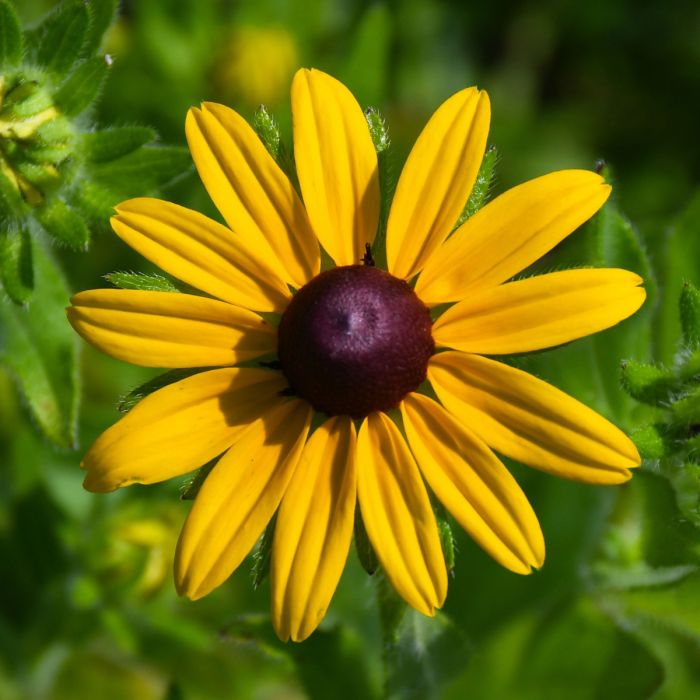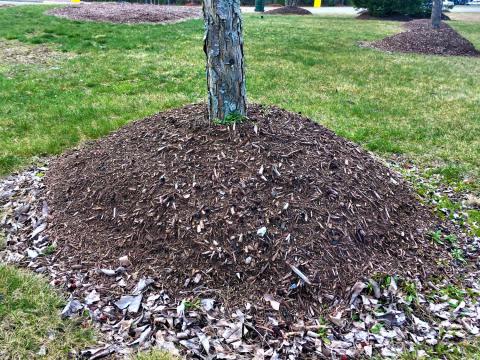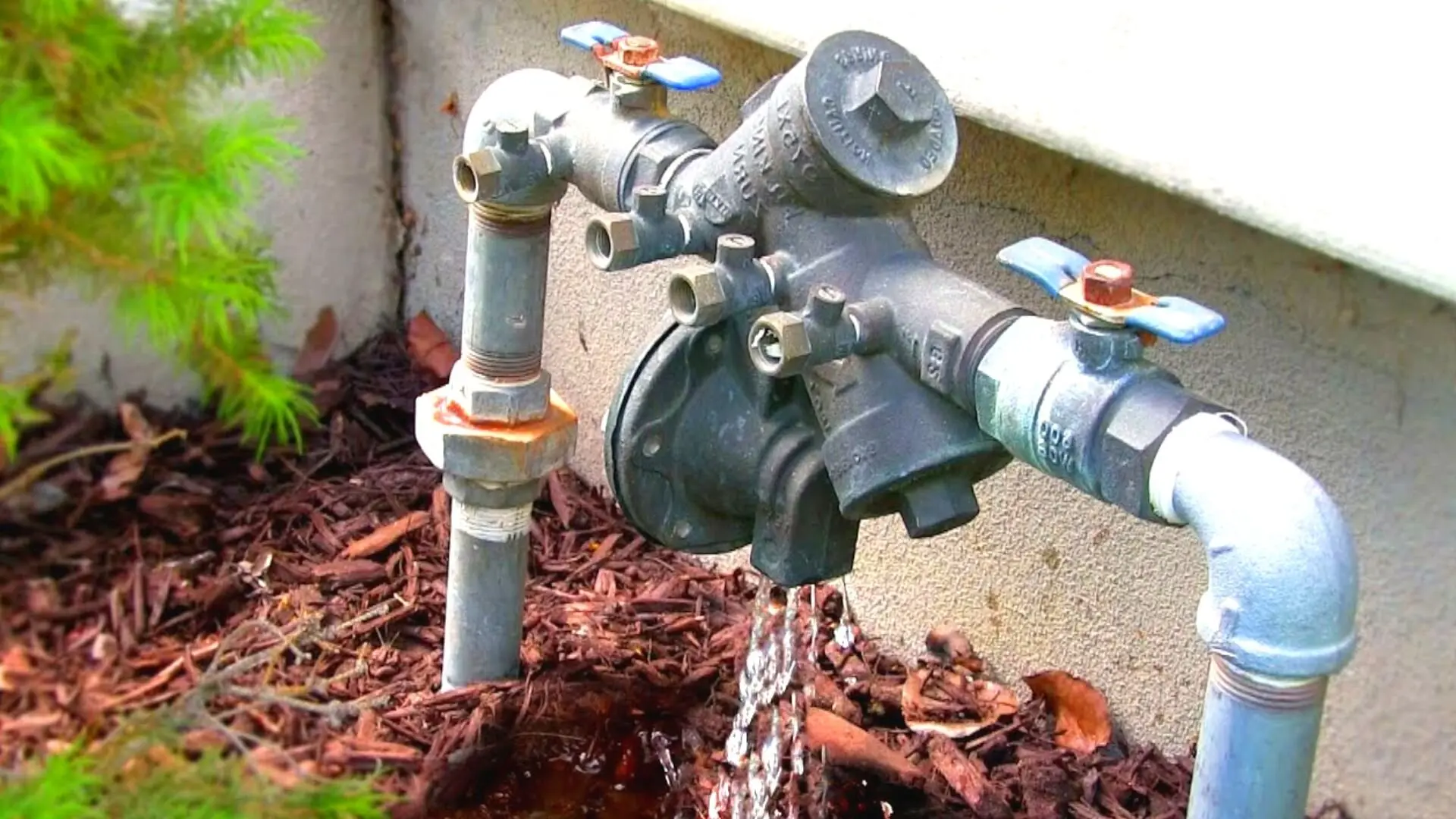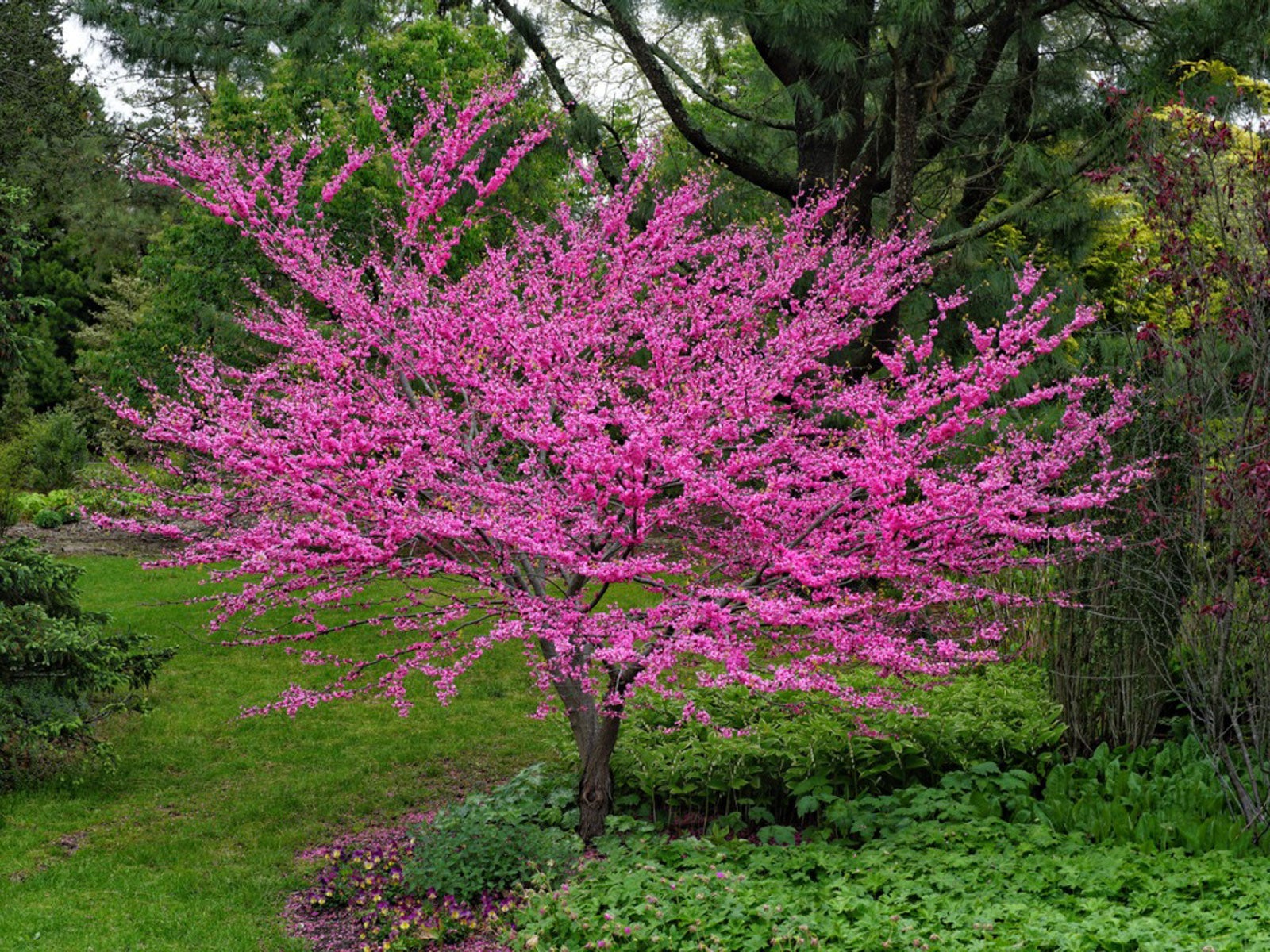The 'N' on a fertilizer bag
Nitrogen
This North American native:

Maple
You'll only have eyes for this yellow beauty:

Black-eyed Susan
A soil with a pH below 6.5.
Acidic
The term used to describe a flower that completes the life cycle in one year.
Annual
The dominant nutrient in a typical "starter" fertilizer.
Phosphorus
This Southern classic:
Magnolia
This cool season staple:

Pansy/viola
The term used to describe soil particles that are pressed too closely together.
Compaction
The popular term given to describe this unfortunate mulching habit:

Volcano mulching!
This special coating that is very popular with turf fertilizers
Slow release/controlled release
This non-native but very popular ornamental:

Crape Myrtle
Smelled, but often not seen:

Gardenia
Want more purplish pink hydrangeas or are your boxwood struggling? Add this pulverized rock to the soil.
Limestone
The U-shaped pipe thingy coming out of the ground

Backflow preventer valve
The 'K on a fertilizer bag
Potassium
This native, early spring bloomer:

Eastern Red Bud
A great choice for a hot and sunny spot:
Lantana
Organic material
This cool season favorite in NC:

Fescue
These little guys break down fertilizer in the soil
Microbes/microorganisms
Often used for screening, this giant's name means "tree of life":

Arborvitae
As big as a dinner plate. In fact, that's the variety name of this huge flower:

Hibiscus
Great for fishing, but even better as an indicator of a healthy soil are these slimy characters.
The process of poking holes in the ground usually occurring around October.
Aeration